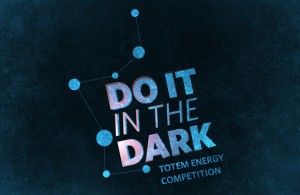 So Good They Can’t Ignore You: Why Skills Trump Passion in the Quest for Work You Love by Cal Newport
So Good They Can’t Ignore You: Why Skills Trump Passion in the Quest for Work You Love by Cal Newport
My rating: 3 of 5 stars
Cal Newport’s So Good They Can’t Ignore You is a non-fiction book in which he explains “Why Skills Trump Passion in the Quest for Work You Love.” I found out about Newport’s book as I am a regular reader of his Study Hacks blog. I was driven to read it by the provocative claim that “Follow your passion” is bad advice.
Newport decided to take a provocative marketing approach by being an antagonist to the passion hypothesis. His book opens with “‘Follow your passion’ is dangerous advice.” Many of his articles, such as in the Harvard Business Review, share the same message. This provocative statement drives his marketing campaign, and is antagonist to much of what many (young) people believe today. I think this is what really drove me to read the book: to see what he had behind his claim.
Early in the book, Newport clarifies the Passion Hypothesis as “The key to occupational happiness is to first figure out what you’re passionate about and then find a job that matches this passion.” Note that this is much more specific than simply “Follow your passion.” I think this is where the marketing campaign is a bit misleading. To say “‘Follow your passion’ is dangerous advice” is, in my opinion, a very different statement than “‘Passion alone can land you a job’ is dangerous advice.” But I feel that this latter message is what this book intends to say.
This book, in a way, states the obvious by pointing out (and elaborating on the fact) that employers hire you for what you can do, not simply what you’re passionate for. I think it is a well known fact that if you cannot sing well, you aren’t going to land a place in an opera no matter how passionate you are about singing. If you cannot act, you’re not going to get the lead in a play no matter how passionate you are about acting. If you don’t know how to program anything beyond HTML, you’re not going to be selected as a software engineer for a major project no matter how passionate you are about software design. But I think (read: assume) this is pretty common sense for most people, non?
In any case, this is the main point pushed by Newport in his book. He expands using other points that I also believed to be pretty common sense. For example, to stand out, you need a valuable skill, sure, but that valuable skill must also be rare. But this is simple supply and demand. It doesn’t matter if you get an A+ in ANAT 391 if most other people also got an A+ in the class. Sure you’re damn good at naming body parts, but so are the thousands of other people who took the class. (Why should you be hired over them?)
All in all, I did like this book by Newport. I liked the way the information was presented, and I like the key points he highlighted. I do not think that this book really brings many new ideas to the table, but I think it is a useful read to some people who have not yet perspective on how employers select employees.
What I didn’t like was the marketing campaign behind the book. I thought it was misleading, and I don’t think I was the only one misled (for instance, I feel that Eunice at 54:29 in the attached audio below may have been misled as well; though, I did not talk to her directly about it). When it comes to things non-career related, “Follow your passion” can still be great advice. Additionally, if you have two equally qualified people apply for a position, but one is passionate about the position whereas the other is not, I think there would be preference to hire the passionate one. Pretty much, I don’t think it’s right to say not to “Follow your passion”… …I think it would be more accurate to say “Follow your passion, but in the case of careers, if you choose to follow your passion, make sure you’re damn good at it.”
View all my reviews
The post Cal Newport’s So Good They Can’t Ignore You appeared first on 夢と愛の千夜一夜.




